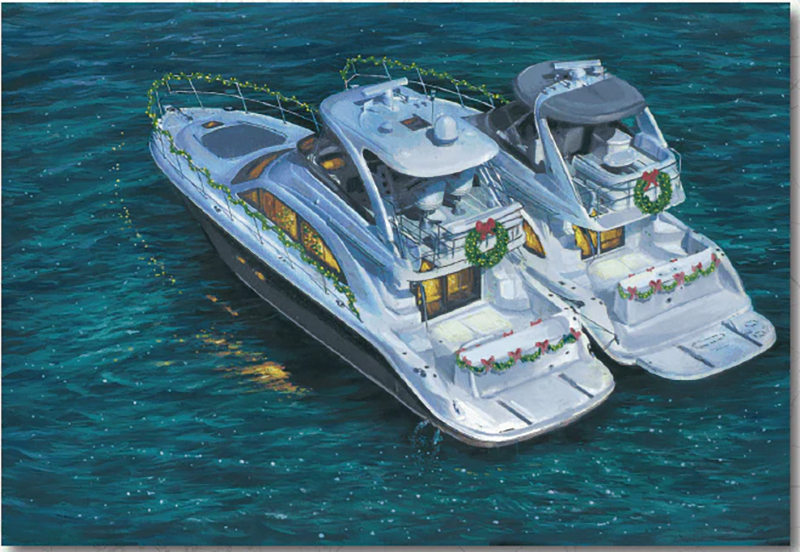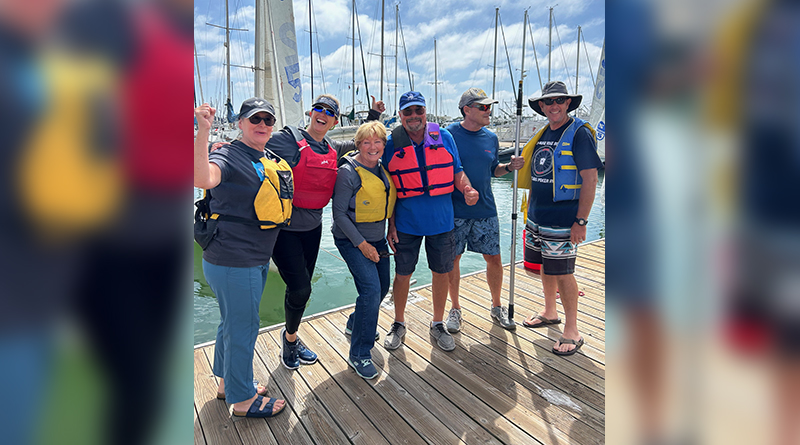For centuries, mariners relied on paper charts, compasses, and a weathered sense of intuition to navigate the world’s waterways. Every route was hand-plotted, every hazard learned the hard way and local knowledge passed quietly from dock to dock. But in today’s era of smartphones and satellite-linked precision, the boating world is undergoing a profound transformation — and one of the most promising tools leading this shift is the free mobile app, Argo.
Argo is available on both iOS and Android platforms, offering an intuitive library of tools specifically designed for recreational boaters. More than just a digital Chartplotter, Argo blends navigation with social connectivity, allowing users to plot courses, share local knowledge, report hazards, and stay in touch with fellow boaters in real time. What sets it apart isn’t just the ease of use or the fact that it’s free — it’s the way Argo is reshaping how boaters engage with one another and with their environment.
At its core, Argo acts like a virtual captain’s log, allowing users to plan and save routes, track their position on the water with GPS precision, and discover nearby marinas, anchorages, and points of interest. Boaters can drop pins to mark hazards like shallow areas or submerged debris and share that information with others using the app. It’s a community-driven tool in an industry that, until recently, was still heavily reliant on solitary planning and outdated printed materials.
For new boaters, Argo offers a soft landing into what can otherwise be a complex and intimidating world. Navigational data is presented clearly, routing is automated, and user-generated content — like hazard markers and marina reviews — helps fill in the blanks that even official charts can’t always cover. For seasoned mariners, Argo provides a level of connectivity and crowd-sourced local knowledge that enhances traditional skillsets and keeps boaters updated on shifting conditions.
Of course, Argo is entering a space already populated by several well-established digital navigation platforms. Navionics by Garmin remains one of the most widely used marine charting apps globally, known for its highly detailed sonar charts, tide and current overlays, and broad compatibility with chartplotters and smart devices. Aqua Map is a favorite among coastal cruisers, particularly for its integration with ActiveCaptain, customizable anchor alarms, and support for offline chart usage. TZ iBoat, developed by TIMEZERO, offers professional-grade charting features, including radar integration, AIS support, and real-time weather data, making it a strong choice for more advanced navigators. But where many of these apps require subscriptions or paid add-ons to access core features, Argo distinguishes itself by being completely free. There’s no upfront cost or hidden tier structure. While it may not include all the technical overlays of high-end platforms, it hits a sweet spot for the everyday boater: simple, effective, and socially connected.
This shift toward app-based navigation is part of a broader trend in recreational boating. The days of thumbing through spiral-bound tide books and plotting bearings with parallel rulers are fading. Today’s boaters — especially younger generations — expect the same user experience on the water that they get on land: smart, connected, and effortless.
And it’s not just about convenience. These technologies are having real safety implications. With real-time data, customizable float plans, and the ability to see and report on-the-water hazards as they arise, boating apps are making it easier to avoid accidents, adapt to changing weather, and communicate emergencies.
The importance of local insight can’t be overstated. Nautical charts, even the most current ones, can’t always account for sandbars that shift monthly or channel markers knocked off course by storms. With Argo’s user-submitted updates, boaters get the kind of granular detail that paper charts and even government-issued digital updates may lack.
Still, the digital era comes with its own caution flags. Experts in navigation and boating safety continue to stress that while apps are powerful tools, they are not foolproof replacements for seamanship and preparation. Battery life, signal availability, and hardware malfunctions remain potential pitfalls. Organizations like the Coast Guard Auxiliary and U.S. Power Squadrons strongly recommend carrying paper charts as backups and maintaining basic navigation skills.
Nonetheless, even these traditionalist voices are quick to admit the value of apps like Argo, especially for casual and weekend boaters who may not be versed in the nuances of navigation. By offering a tool that’s both accessible and educational, Argo serves as a bridge between old-world seamanship and the future of connected boating.
Beyond navigation, Argo also supports planning and trip logging. Users can save their past routes, track distances, and even view estimated travel times based on their vessel’s cruising speed. There’s also a social map feature, which highlights where friends or other boaters have recently traveled, creating a digital trail of maritime activity. In many ways, it brings a kind of “social media for boaters” feel to the nautical experience.
This community-based feedback loop is helping fill in gaps in official data and turning recreational boating into a more collaborative, informed pastime. Planning a trip? Argo can show you where others went, where they stopped, and what to watch out for. Need to avoid an unmarked shoal or a snagged mooring line someone else encountered yesterday? The alert may already be on your map.
As marinas, harbor authorities, and cruising groups become more attuned to the value of digital connectivity, apps like Argo are likely to become essential tools, not just conveniences. Marina operators can update dock availability or note closures. Clubs can share meet-up locations and group routes. Emergency responders, in some cases, can even receive more accurate data about a distressed vessel’s last known location.
The evolution is clear: boating, once defined by solitude and instinct, is becoming more open, dynamic, and data-informed. Apps like Argo reflect this new reality — one where information moves as quickly as the boats themselves, and where the joy of discovery is enhanced by shared experience.
For boaters looking to chart smarter, safer, and more social journeys, Argo is proving that the best tools don’t always come with a price tag. As the digital tide rises across marinas and anchorages nationwide, it’s becoming less about what you can find on your chart and more about what you can learn from the collective knowledge of others.
Boaters may still cherish their analog traditions, but with the tap of a screen, they’re now empowered to cruise with confidence — guided not just by compass and chart, but by the voices of an entire boating community. And at the center of that evolution, Argo is steering the fleet into the future.
As boating technology continues to evolve, tools like Argo are proving that navigating the water doesn’t have to be complicated — or costly. With the right apps, today’s boaters can stay safer, plan smarter, and tap into the collective wisdom of the community like never before. But navigation is just one part of the story. Stay tuned for the next features in this continuing series on essential marine apps, where we’ll dive into captain- and angler-approved tools for weather forecasting, tide tracking, pump-out station locators, sea surface temperatures, chlorophyll charts, and moon phase planning. These are the apps trusted by those who are on the water every day — and they just might become your new favorite first mates.





